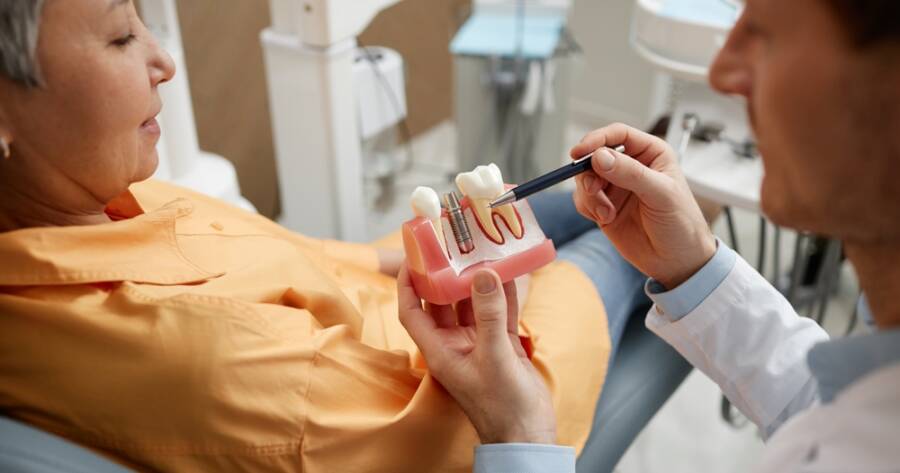Dental trials present a valuable opportunity for those considering implants, offering free or low-cost treatments while advancing scientific understanding. Participants can benefit from cutting-edge procedures and financial compensation in a safe, ethically managed environment. Insights from clinical trials shape future care, combining personal healthcare advancements with significant contributions to dental research.
Understanding Dental Trials for Implant Candidates
Dental trials have become a promising avenue for those considering dental implants, especially with the emergence of high-paying trials that offer significant benefits. Such trials not only provide participants with valuable dental care but also advance scientific knowledge in the field.
Dental trials often serve as a source of free or low-cost dental implants, as researchers seek to test new treatments and medical devices to ensure safety and effectiveness before broader public use. Participants can reap the reward of receiving expensive implants at little to no cost, making these trials an attractive solution for individuals seeking affordable dental procedures.
The Benefits of Participating in Dental Trials
One of the most compelling benefits of participating in dental trials is the opportunity to receive dental implants at no charge, a substantial incentive for those who can participate. For instance, the NYU Dentistry Translational Research Center offers clinical studies where participants aged 18 and older can receive a dental implant and crown free of charge, provided they meet specific healthcare criteria and complete the required study visits. Additionally, participants often gain financial compensation for their time, making this option even more appealing.
Available Clinical Trials and Key Requirements
A variety of clinical trials are available for dental implant candidates, each with its specific focus and requirements. For example, the RevBio Dental Implant Standard of Care Study offers up to $500 for participants who complete the study, which examines the use of innovative materials for tooth stabilization in comparison to delayed implant placement. Other trials, such as those listed on the Power online platform, require varying numbers of participants and evaluate a range of new treatments, including antiseptics for implant success and advanced imaging technology.
Eligibility criteria can vary significantly from one trial to another. Generally, candidates must be adults, who are medically fit, and may need to meet health standards to ensure safety during the procedure. Trials typically exclude individuals with uncontrolled medical conditions, recent tobacco use, or other incompatible health issues that could interfere with the implant process.
Evaluating the Impact on Dental Care
The results and insights gained from participating in dental trials are invaluable for the future of dental care. These trials frequently shape treatment approaches and improve patient outcomes by testing cutting-edge solutions under controlled conditions.
Clinical research centers, like NYU’s, are dedicated to evaluating new methods for implant placement in different bone positions to better understand their performance and impact, ultimately influencing the standards of dental implantology.
High Compensation for Participants
Financial compensation for participants is another key motivating factor. Many trials offer payment for involvement, acknowledging the time and commitment required.
For instance, RevBio’s trial compensates participants with $500, reflecting the willingness of sponsors to incentivize participation for the duration of the study. This compensation can alleviate some of the financial burdens associated with dental procedures and serves as recognition for the role participants play in advancing medical research.
Secure and Ethical Participation
Potential participants can rest assured that all listed dental trials meet strict ethical and safety standards, with FDA-reviewed guidelines ensuring the integrity of the research and the welfare of the subjects involved. These measures help to maintain high standards of patient safety and are a critical component of the recruitment and procedural aspects of trials. With rigorous oversight, participants are assured that their experience will be both safe and significant in contributing to dental healthcare advancements.
Why You Should Learn More About Dental Trials Today
Exploring the option of dental trials is beneficial for those seeking cost-effective dental implants and wanting to contribute to medical research. With the possibility of receiving free treatments or financial compensation, these trials offer a unique opportunity to access advanced dental care while aiding in vital scientific studies.
Understanding the various requirements and benefits can help potential participants make informed decisions about their eligibility and involvement in these trials. As innovations in dental technology continue to progress, engaging in clinical research can be a rewarding way to enhance one’s dental health while playing an active role in shaping the future of dental treatment.
Sources
Information on Free Dental Implants
RevBio Dental Implant Trial Details
